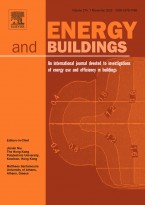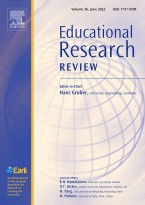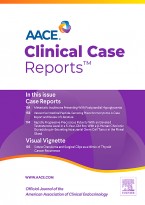
چکیده فارسی
یک رژیم کتوژنیک ممکن است باروری را در زنان مبتلا به سندرم تخمدان پلی کیستیک بازگرداند: یک سری موارد
چکیده هدف: سندرم تخمدان پلی کیستیک (PCOS) شایع ترین علت ناباروری در زنان است. ما سیر بالینی 4 زن مبتلا به سندرم تخمدان پلی کیستیک را گزارش میکنیم که سعی داشتند در حین پیروی از رژیم کتوژنیک باردار شوند و باروری آنها را پس از یک دوره 6 ماهه ارزیابی میکنیم. روشها: بیماران ماهیانه یک بار در یک قرار ملاقات مشترک پزشکی به مدت 6 ماه پیگیری شدند. در طی هر ویزیت، بیماران از نظر پیشرفت کاهش وزن، منظم بودن قاعدگی و تخمک گذاری مورد ارزیابی قرار گرفتند. يافته ها: سن بيماران از 24 تا 29 سال، شاخص توده بدني 75/30 تا 46/42 کيلوگرم بر متر مربع و مدت ناباروري از 1 تا 5/4 سال بود. همه بیماران به بارداری علاقه داشتند. تشخیص سندرم تخمدان پلی کیستیک توسط مشاوره غدد درون ریز تایید شد و بیماران یک رژیم غذایی سریع اصلاح شده با صرفه جویی در پروتئین (PSMF) را آغاز کردند. رژیم PSMF شامل حداکثر مصرف کربوهیدرات کل روزانه 20 گرم، مصرف چربی تا 50 گرم و دریافت پروتئین تقریبی حدود 1.5 گرم برای هر 1 کیلوگرم وزن ایده آل است. متفورمین اگر قبلاً آن را مصرف میکردند ادامه میداد، در غیر این صورت با رژیم PSMF شروع میشد و تا 500 میلیگرم دو بار در روز تیتر میشد. هر 4 بیمار به رژیم PSMF پایبند بودند و توانستند وزن خود را کاهش دهند (از 19 تا 36 پوند). هر 4 نفر نیز قبل از رژیم PSMF دوره های نامنظم داشتند و مدت کوتاهی پس از شروع رژیم PSMF (از 4 تا 8 هفته) قاعدگی منظم را از سر گرفتند. دو زن توانستند بدون نیاز به القای تخمک گذاری، خود به خود باردار شوند. نتیجهگیری: رژیم غذایی PSMF ممکن است با کاهش وزن و تسهیل تخمکگذاری، مزایای امیدوارکنندهای برای زنان مبتلا به PCOS داشته باشد. اختصارات: BMI = شاخص توده بدن؛ HSG = هیستروسالپنگوگرام؛ PCOS = سندرم تخمدان پلی کیستیک؛ PSMF = پروتئين اصلاح شده سریع؛ SMA = قرار ملاقات پزشکی مشترک
چکیده انگلیسی
A Ketogenic Diet may Restore Fertility in Women With Polycystic Ovary Syndrome: A Case Series
ABSTRACT Objective: Polycystic ovary syndrome (PCOS) is the most common cause of infertility in women. We report the clinical course of 4 women with PCOS trying to conceive while following a ketogenic diet and assess their fecundity after a period of 6 months. Methods: The patients were followed once monthly in a shared medical appointment setting for total of 6 months. During each visit, the patients were assessed for weight loss progression, menstrual regularity, and ovulation. Results: The patients' ages ranged from 24 to 29 years old, their body mass indexes from 30.75 to 42.46 kg/m2, and their duration of infertility from 1 to 4.5 years. All patients were interested in pregnancy. The diagnosis of PCOS was confirmed by an endocrinology consultation, and the patients initiated a protein-sparing modified fast (PSMF) diet. The PSMF diet entails a maximum daily total carbohydrate intake of 20 g, fat intake up to 50 g, and an approximate protein intake of about 1.5g for each 1 kg of ideal body weight. Metformin was continued if they were already taking it, otherwise it was initiated with the PSMF diet and titrated up to 500 mg twice daily. All 4 patients adhered to the PSMF diet and were able to lose weight (ranging from 19 to 36 lbs). All 4 also had irregular periods prior to the PSMF diet, and resumed regular menstruation shortly after starting the PSMF diet (ranging from 4 to 8 weeks). Two women were able to conceive spontaneously with no ovulation induction needed. Conclusion: The PSMF diet may have a promising benefit for women with PCOS by inducing weight loss and facilitating ovulation. Abbreviations: BMI = body mass index;HSG = hysterosalpingogram;PCOS = polycystic ovary syndrome;PSMF = protein-sparing modified fast;SMA = shared medical appointment






